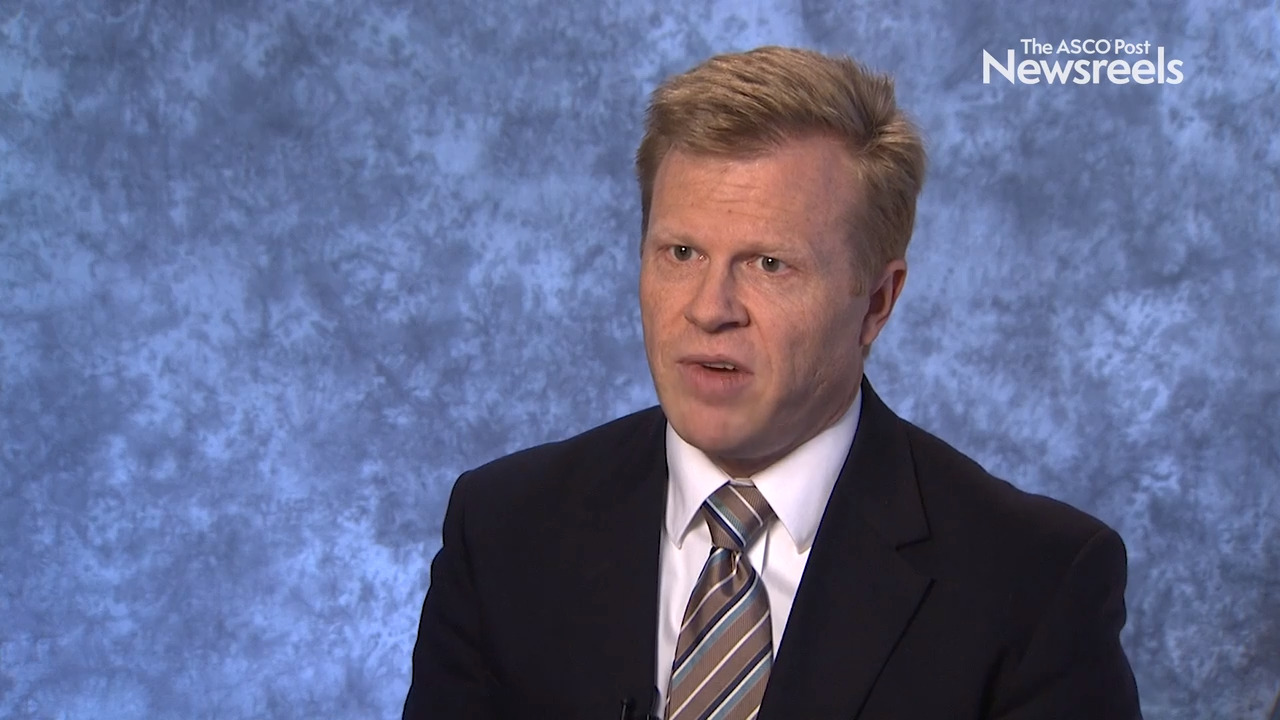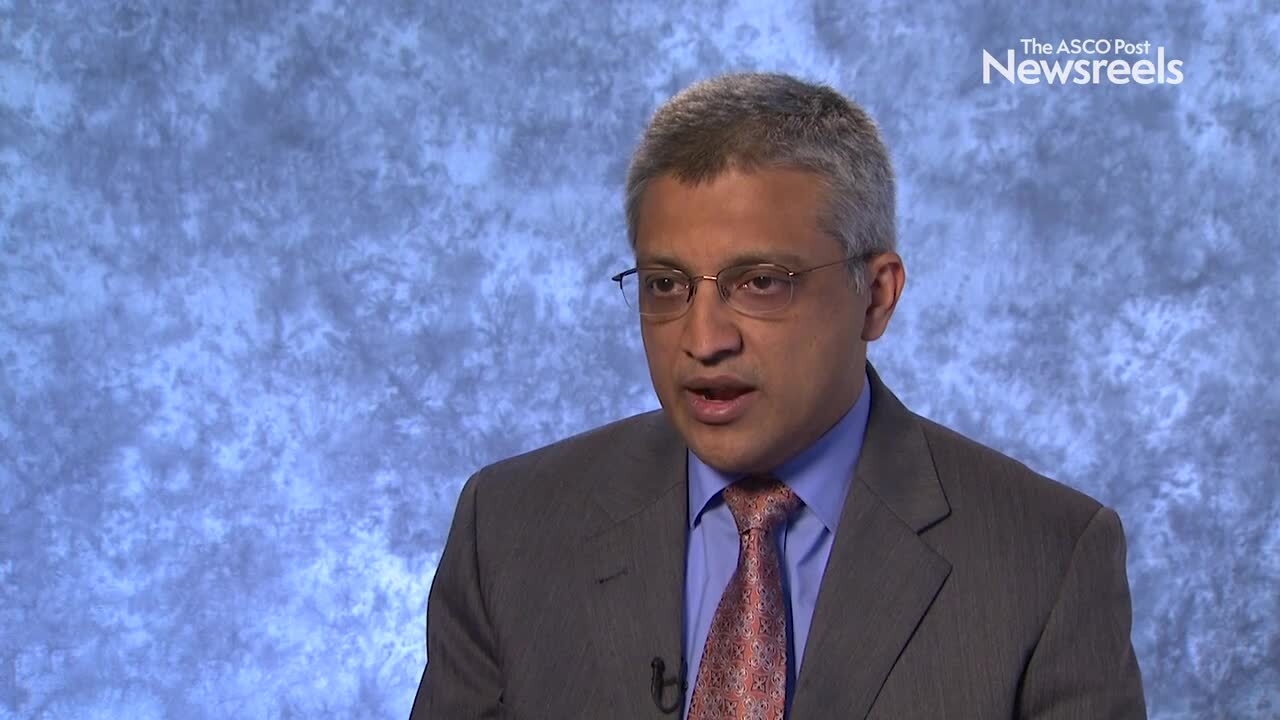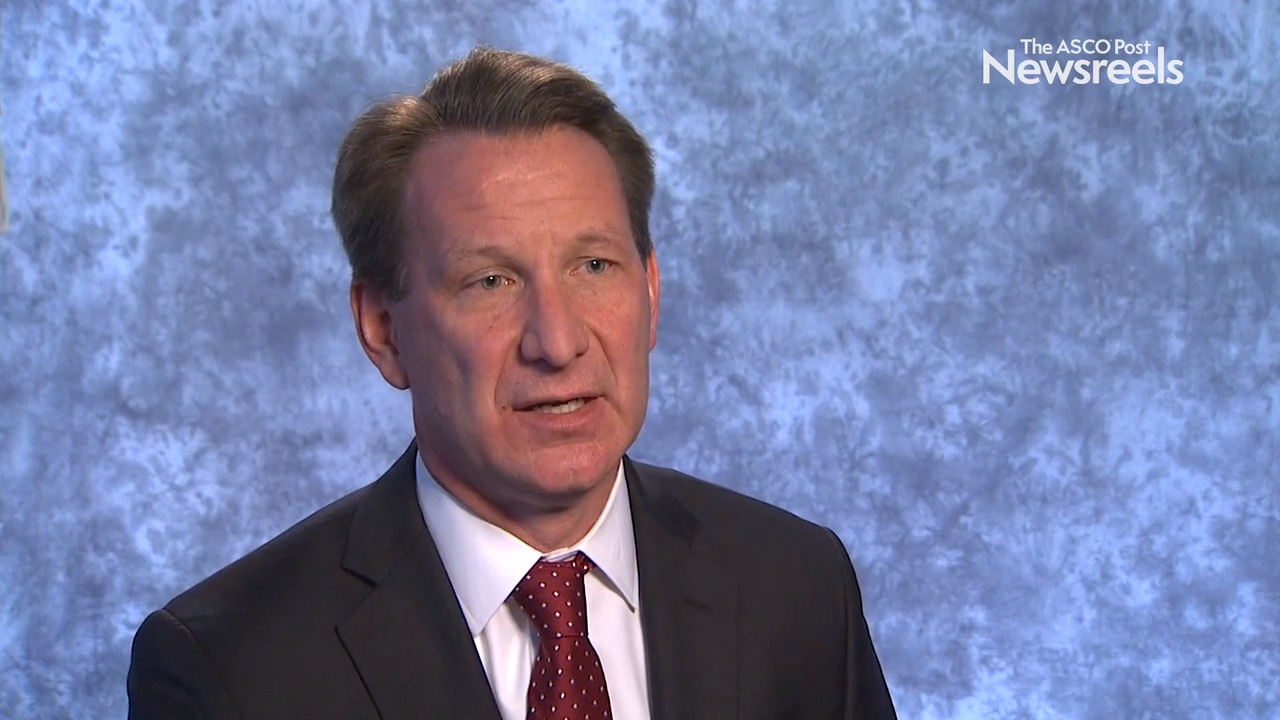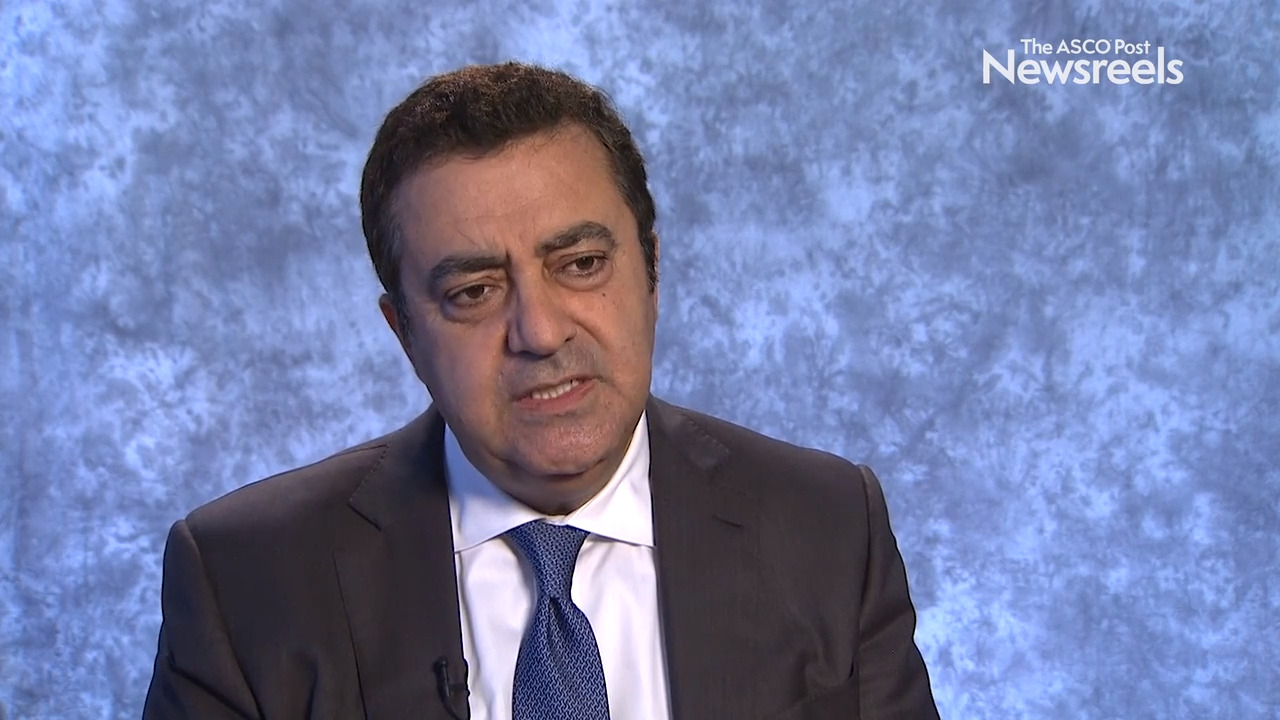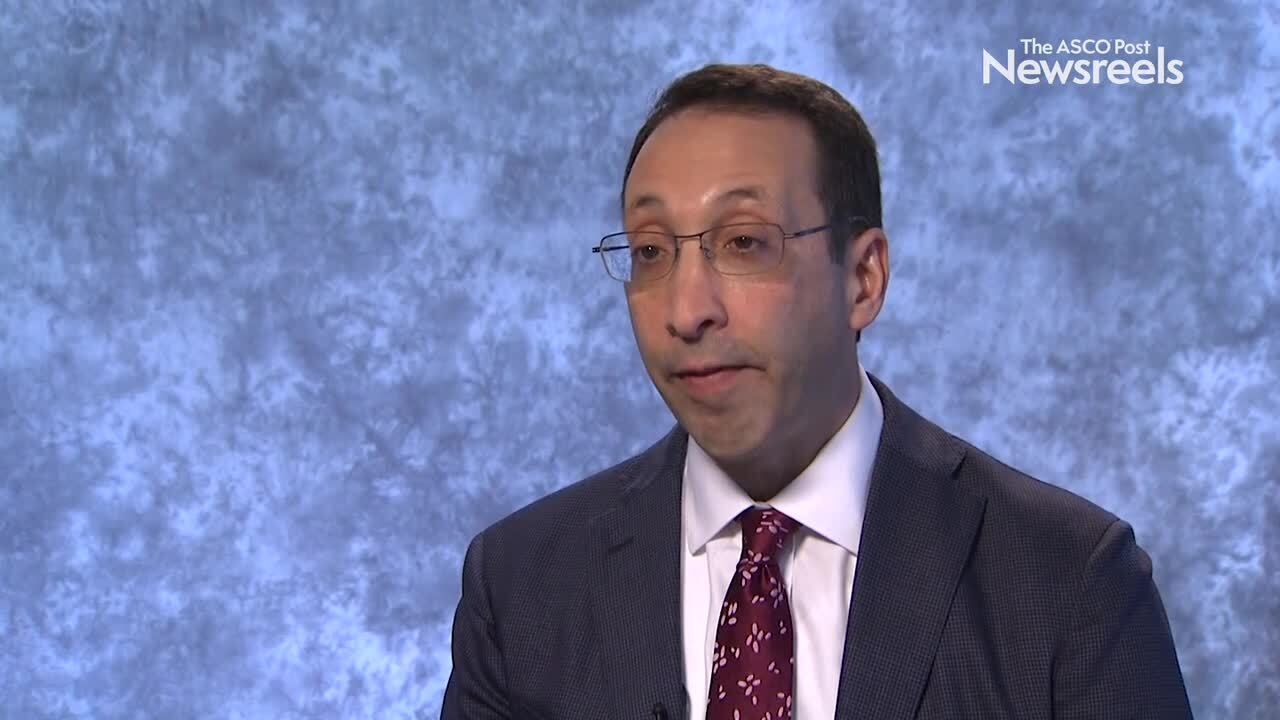Paul Richardson, MD, on Multiple Myeloma: Results From the OP-106 Horizon Trial
2018 ASH Annual Meeting & Exposition
Paul Richardson, MD, of Dana-Farber Cancer Institute, discusses updated results and the first report on progression-free survival for melflufen therapy administered to people with multiple myeloma that is refractory to daratumumab and/or pomalidomide (Abstract 600).
Tait D. Shanafelt, MD, of Stanford University, discusses phase III study findings on ibrutinib-based therapy vs standard fludarabine, cyclophosphamide, and rituximab chemoimmunotherapy in untreated younger patients with chronic lymphocytic leukemia (Abstract LBA4).
Shaji K. Kumar, MD, of the Mayo Clinic, discusses phase III findings on daratumumab plus lenalidomide and dexamethasone vs lenalidomide and dexamethasone in people with newly diagnosed multiple myeloma who are ineligible for transplant (Abstract LBA2).
Norman E. Sharpless, MD, Director of the National Cancer Institute, discusses his vision for the NCI in four key areas––big data, clinical trials, workforce development, and basic science––and how this vision affects the hematology community.
Anas Younes, MD, of Memorial Sloan Kettering Cancer Center, discusses trial findings on ibrutinib plus rituximab, cyclophosphamide, doxorubicin, vincristine, and prednisone in people with previously untreated non–germinal center B-cell–like diffuse large B-cell lymphoma (Abstract 784).
Steven M. Horwitz, MD, of Memorial Sloan Kettering Cancer Center, discusses phase III findings on brentuximab vedotin and CHP vs CHOP in the front-line treatment of patients with CD30-positive peripheral T-cell lymphomas (Abstract 997).
